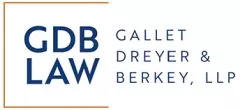Many property owners aren't aware of the potential risks associated with the booming short-term rental industry.
First things first for financial advisors with clients who are renting out their second homes: Make sure they get paid for the entire season upfront, not month-to-month.
Americans are getting out of town in droves this summer, with 64% planning to rent vacation properties. Unfortunately, many first-time rental property owners aren't aware of the potential risks associated with the booming short-term rental industry.
Seriously, ensuring a clean short-term rental transaction is far from a walk on the beach. There's a reason why the FBI's Internet Crime Complaint Center reported that real estate scams, including those involving short-term rentals, resulted in nearly $400 million in losses for almost 12,000 victims last year.
From the perspective of property owners, getting the whole fee in advance is an essential demand and one that rookies should remember. So is limiting the number of guests that the renter can entertain on the property, said attorney Scott Smiler, a partner with Gallet Dreyer & Berkey.
"An intimate dinner party or family BBQ is one thing, but a weekend frat party is not acceptable," Smiler said. "We also recommend adding a clause in the lease affirmatively requiring the renter to clean the property upon lease termination. Depending upon the property, holding a separate security deposit for cleaning purposes is not uncommon."
Along those lines, LegalShield attorney Robert Bellitto Jr. of Willinger Willinger & Bucci in Connecticut advises homeowners looking to rent their homes away from home to check with their lender to see whether short-term rentals are a permissible use. Mortgages on owner-occupied properties can prohibit their use for rental purposes, with rentals constituting a default on the mortgage.
Bellitto also pointed out that host liability insurance can cover homeowners if they're found legally responsible for bodily injury to a guest, damage to or theft of property belonging to a guest, or damage caused by a guest to common areas, like building lobbies and nearby properties.
Nevertheless, insuring a secondary home that's used for rental purposes can be challenging, particularly when it's a short-term rental, available for a week or less on platforms such as Airbnb or VRBO. Many carriers won't accept a property that uses these transactional platforms for a number of reasons.
Jason Bataille, principal and division growth leader at World Insurance Associates, said that once a carrier is identified, homeowners will want to make sure the property is insured for its total replacement cost, not just the purchase price of the home, which may be less.
"Going to an independent agent is always best in these scenarios as they will have access to the largest number of carriers to ensure the best coverages and pricing," Bataille said.
In other words, hosts shouldn't simply accept the insurance provided by some booking platforms, as all-encompassing as it may seem. They should do plenty of their own research as well.
Rental Red Flags
As for the red flags renters should look for before putting pen to contract, Smiler said the best way to spot them in advance is to tour the property.
"Online postings of the property can often be deceptive as to scale," he said. "You can also never tell if the postings were edited to show the property in a better light. By touring the property, renters can also get a better feel as to location of the property relative to the beach, the local supermarket and the nightlife."
Touring in advance is also vital because most properties are rented as is.
"If you have an understanding that the owner will fix certain items in the property prior to lease commencement, this must be included in the lease. Otherwise, you have no recourse," Smiler said.
And while getting the full fee in advance is a best practice on the homeowner's side, from a renter's perspective, paying month-by-month is obviously the more advantageous play. The actual time when you need to pay varies depending on booking platform, location, and length of stay. Some properties let you pay a portion upon confirmation, with the rest charged upon checkout.
The content of this article is intended to provide a general guide to the subject matter. Specialist advice should be sought about your specific circumstances.


